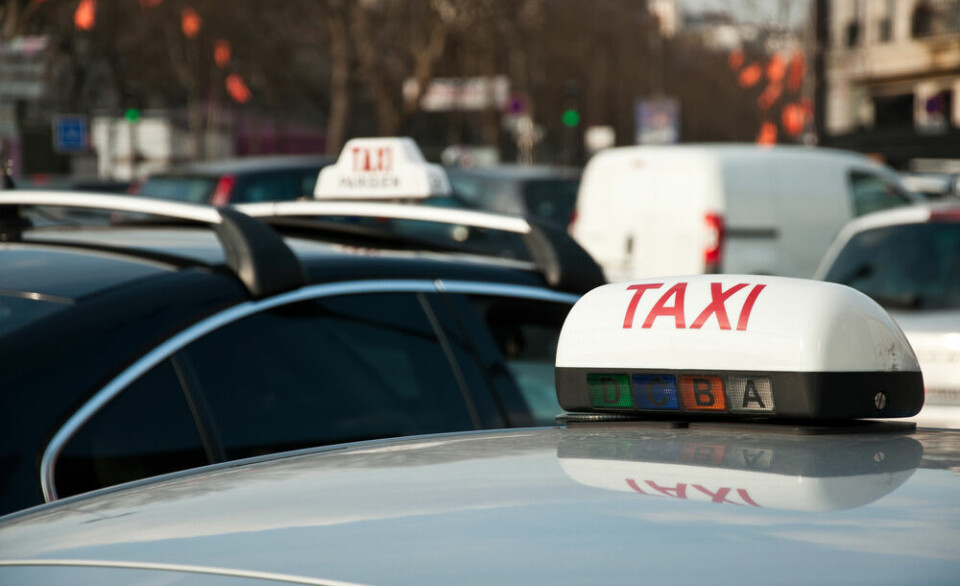The French government has released its long-awaited climate and energy production objectives.
The targets were laid out yesterday (November 4) by the Ecology Ministry after several months of delays, and focus on short-term targets (to achieve by 2030 and 2035) and longer into the future (by 2050).
They are set out in three documents, which the government has been revising since 2021, and which together form ‘The French Strategy for Energy and Climate’ (SFEC).
These form a ‘roadmap’ for how France will work towards reducing greenhouse gas emissions with a view to achieving ‘net zero’ carbon emissions by 2050.
Ultimately, this is also part of France’s strategy towards aims set in the 2016 Paris Climate Accords, which seeks to stop temperatures rising more than 2C above those in pre-industrial times, and preferably no more than 1.5C.
Launching the new objectives, Ecology Minister Agnès Pannier-Runacher said they were “ambitious” but that “the large drop in greenhouse gas emissions of 5.8% from 2022 to 2023 shows us that it’s possible to act and have results”.
Transport Minister François Durovray stated that “transport represents 32% of the emissions - and are therefore a third of the problem, but also a third of the solution”. He said we should work towards less use of individual cars, especially those running on fossil fuels.
Energy Minister Olga Givernet, said that we will “have to reduce our consumption, thanks to sobriety and energy efficiency, while at the same time massively developing carbon-fee energy production”.
“It’s not just a question of energy, but a societal choice with will determine our future,” she added.
Parts of this strategy are now open to a consultation exercise, and set to be finally confirmed in 2025. Anyone can contribute, at this link.
Below, we outline key measures in the new targets and the potential effects for people in France.
1: Slashing greenhouse gas emissions
The biggest objective – perhaps the overarching short-term goal – is to cut greenhouse gas emissions in France.
The aim is that by 2030, emissions should be half (50%) of what they were in 1990. This target has been tightened compared to the previous plan, which said they should be no more than 60%.
The government also wants to see the use of fossil fuels cut so that no more than 42% of energy usage in France at the point of ‘final consumption’ (ie. by households and businesses) is linked to such fuels by 2030, down from 59% in 2022. By 2035, this should drop to 30%.
In comparison, the amount of electricity used for final consumption should increase, up to 34% in 2030 then 39% in 2035.
This will require increased electricity production, which is the focus of some of the other targets.
There are no specific rule changes to cut emissions, however all of the government’s plans arc towards this larger objective.
2: Increased nuclear production
To manage this increase in electricity production – and decrease in use of fossil fuels as an energy source – France will look to expand its nuclear capacity.
Six new nuclear reactors are to be built in France under the Evolutionary Power Reactor 2 (EPR2) scheme, with a potential for up to 14 more.
These new reactors will be built at sites where nuclear power plants already exist (Penly, Gravelines, and Bugey).
It would see electricity production from nuclear reactors rise to around 360 terawatt hours (TWh) per year, up from 320TWh in 2023 (and 279TWh in 2022, when many reactors were temporarily closed for maintenance).
For reference, one TWh equates to one billion kilowatt hours (KWh).
Around two-thirds of France’s total electricity production comes from nuclear power.
This contributes to France’s lower electricity prices compared to other countries (as it is affected less by market fluctuations) and lower emissions from electricity production.
Energy prices are set to drop by around 10% in January, even as taxes on consumption are raised.
Read more: Electricity prices will reduce for most French households in January
The construction of nationally-managed nuclear reactors will help to keep energy prices down, however construction and maintenance costs are high.
The total cost for the construction and maintenance of the six new reactors is forecast by EDF to be around €67 billion.
This is a significant amount – France’s hard-hitting 2025 budget, criticised by many as ushering in a wave of austerity, is seeking to save €60 billion per year.
Funding for the reactors will need to be found, but in the long-term should result in savings.
3: Renewable energy drive
In terms of renewable energy sources, the government committed to keeping current construction objectives for onshore wind turbines (éoliennes).
This would see the annual construction of wind turbine farms that generate 1.5 gigawatt (GW) of energy each year.
By 2035, onshore wind turbines would generate 40GW of energy, around double current levels.
Offshore wind turbines should generate around 18GW of energy by 2035, compared to 1.5GW currently.
Read more: MAP: Offshore sites identified for new wind farms in France
This is unlikely to affect the installation of domestic wind turbines.
An increase in energy production from solar panels is also planned, with production of panels generating 5.5 GW of energy per year now the annual target.
This is up from previous plans, where the yearly objective was development of panels producing 3 GW of energy.
Again, this is not likely to impact domestic installation, although there are more aids for installing solar panels than wind turbines on your property.
Read more: What aid is available to install home solar panels in France in 2024?
These changes are unlikely to see electricity prices change, especially with the nuclear drive mentioned above.
However, the government plans to reduce overall energy consumption.
By 2030, it wants consumption to drop 30% from 2012 levels, and by 2050 see consumption compared to 2012 halved.
Such plans have not seen limits on energy consumption put in place, however last year tests in central France saw certain homes have the amount of electricity available to them limited.
4: Increase in electric vehicles on road
The government wants the share of electric vehicles on French roads to reach 15% by 2030, as opposed to just over 2% now.
Stricter malus penalties for the purchase of petrol and diesel vehicle purchases may have been rejected from the 2025 budget, but there is no guarantee similar policies will not be included in future budgets in an attempt to speed up electric vehicle purchases.
Read more: Vehicle ‘malus’ increase rejected by French parliament
Current bonuses for purchasing electric vehicles will likely remain in place, however, to encourage those purchasing a new car to opt for an electric or hybrid one.
Read more: Explained: Electric vehicle grants, maintenance and charging in France
At the same time, the government wants two-thirds of vehicle purchases to be electric vehicles by 2030.
Currently, just under 17% of new vehicles purchased are electric, however the share of electric and hybrid vehicles combined is greater than diesel and petrol vehicles, representing around 55% of all sales.
This is a jump from 2023, when less than half of vehicles purchased were fully or partially electric.
Read more: CHART: Fewer petrol cars being bought in France in 2024
There are also plans to increase the number of public transport users in France, as well as the number of cycle lanes, to facilitate cycling.
5: Increased property renovations
The government wants to see the carbon dioxide emissions from the housing sector nearly halved by 2030.
It wants emissions to drop from 62 million tonnes of CO² in 2022 to 35 million tonnes in 2030.
To achieve this, the government wants to see 400,000 homes, and 200,000 blocks of flats renovated each year until 2030.
This comes, however, as it is thought the government may be intending to push back deadlines for stricter measures on banning the rental of energy-inefficient homes (which contribute to higher CO² levels).
Read more: Change to timeline of energy efficiency rules for French homes announced by PM
It also appears contradictory to plans, in its 2025 budget, to reduce the money allocated for aids for ecological renovation such as MaPrimeRénov’.




























